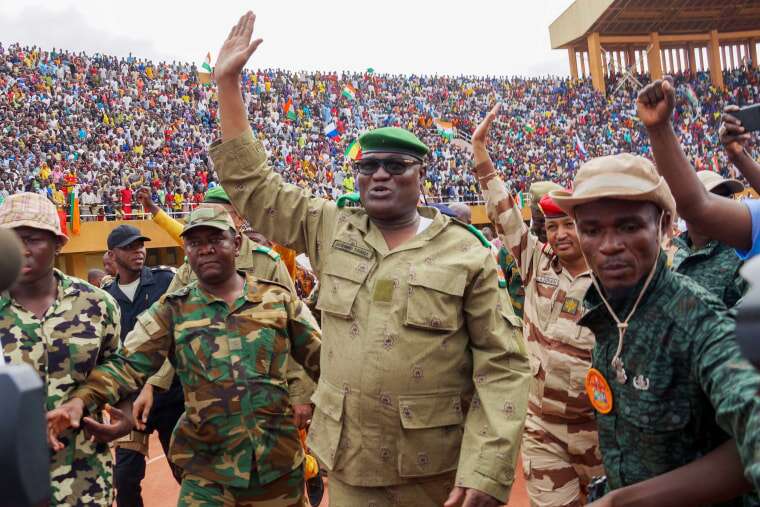
Niger’s military junta announced the appointment of 21 ministers for a fresh government through state television overnight, asserting its objectives ahead of a Thursday summit involving regional leaders.
Leaders from West African nations convene for a summit in Nigeria, with the objective of establishing a course of action for Niger. Despite the bloc’s warning that it might resort to force to reinstate democracy, the coup leaders in Niger have persisted in their refusal to step down.
Since the surprising seizure of power on July 26th, which sent shockwaves across the region, the resolute junta has rejected diplomatic efforts and disregarded the August 6th ultimatum issued by the Economic Community of West African States (ECOWAS) to reinstate the ousted President Mohamed Bazoum.
Mahamane Roufai Laouali, identified as the “Secretary General of the Government,” announced the names on television without providing additional details about the plans.
The new government is comprised of half the number of ministers compared to the previous one.
U.N. Secretary-General Antonio Guterres expressed apprehension regarding Bazoum and his family, following reports from his party that they were held in confinement at the presidential residence without access to electricity or running water.
“The Secretary-General… once again calls for his immediate, unconditional release and his reinstatement as Head of State,” a U.N. spokesperson said on Wednesday.
The gathering in Abuja, the capital of Nigeria, could mark a critical juncture in the ongoing impasse. Anticipated as a crucial step, the leaders of the bloc are likely to reach a consensus on the subsequent actions, which might encompass military intervention – an option an ECOWAS official has characterized as a final measure.
Representatives of Bola Tinubu, the Nigerian president and ECOWAS chair, engaged with the coup leaders in the capital city of Niamey on Wednesday.
The meeting offered a potential avenue for dialogue, providing a ray of hope following previous diplomatic efforts that were rejected.
An escalation would exacerbate the instability in the Sahel region of West Africa, already one of the world’s most impoverished areas.
In this region, a persistent Islamist insurgency has led to the displacement of millions and aggravated a severe hunger crisis.
While initially rooted in internal politics, the coup has transformed into a complex international situation. ECOWAS, the United Nations, and Western nations are pressuring the junta to relinquish power.
Simultaneously, military regimes in neighboring Mali and Burkina Faso have pledged to support the junta.
